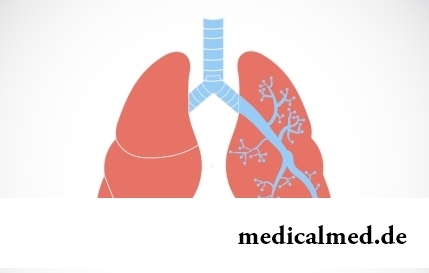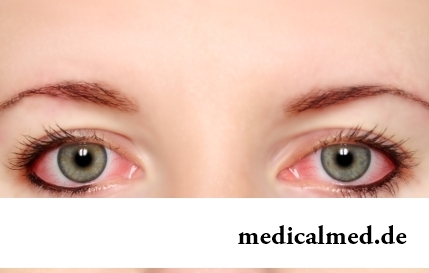





Dizziness
Dizziness – unpleasant feeling of the movement of the objects which are around, or themselves. Statistically, dizziness – one of the most frequent complaints of patients to the doctor. The most various diseases can become the reasons of dizziness.
The healthy person feels equilibrium state at the expense of signals from the proprioceptive, visual and vestibular systems coming to a cerebral cortex. The brain, in turn, transfers impulses in eye and skeletal muscles that provides the necessary provision of eyeglobes and a steady pose. If receipt of impulses from vestibular departments in bark of a parietal and temporal lobe is broken, there is an illusion of the movement of surrounding objects, or own body.
Types of dizziness
- Dizziness at brain disturbances. Occurs owing to cerebellum pathologies. As the dizziness reasons the tumor, skull injuries, shift of a cerebellum or hydrocephaly, vascular disorders of a brain, an injury of cervical department of a backbone can serve here. Sharp and severe dizziness can be a cerebellum heart attack symptom. As the reason reception chemical or medicines to which the barbiturates and anticonvulsants causing dizziness, drowsiness and block belong can also serve.
- Psychogenic dizziness. As a rule, it is shown because of strong fatigue or after strong emotional experiences. At the same time the patient can feel feeling of instability, weakness, an ambiguity in the head. Such mental disorders as alarm with the panic attacks, depersonalization, hysteria can become the morbid conditions causing dizziness.
- Dizziness at ear pathology. Arises owing to defeat of various structures: vessels and nerves of an Eustachian tube, vestibular mechanism. It is combined, as a rule, with a sonitus and pain, a hearing loss. Cerumen impaction in outside acoustical pass is the simplest reason of dizziness.
- Dizziness of the eye nature. Arises preferential at healthy people as a result of too strong visual stimulation. Also paralysis of eye muscles which leads to disturbance of a projection of objects to an eye retina because of what in a brain there is the "wrong" picture can become the reason of such dizziness.
How to define the dizziness reason?
About 80 reasons of dizziness are known. So, the dizziness resulting from disturbance of a vestibular mechanism or damage of an inner ear call peripheral. If dizziness results from brain diseases, then it call central.
The nature of dizzinesses, symptoms arising at the same time the frequency and duration of attacks help to define an actual reason of developing of dizziness:
- Decrease in hearing, existence of allocations from an ear, as a rule, testifies to an inflammation of an inner ear. Treatment of dizziness at the same time conservative is preferential.
- If dizziness is followed by vomiting and nausea, decrease in hearing, a sonitus, then existence of a syndrome of Menyer is possible. If acoustical frustration does not arise, then existence of vestibular neuritis is possible. At neuritis there is sudden and severe dizziness, in attempts to rise or the movements of the head the feeling of rotation amplifies.
- At a strong sonitus, sudden unilateral deafness and vomiting approximately from 50% confidence it is possible to speak about a perilymphangeal fistula. Also the fistula can be shown by disorder of hearing, severe or slight dizziness.
- When developing dizziness and a unilateral hearing loss it is necessary to be checked for existence of tumors in a brain. Often at tumors there is at first slight dizziness, and then and strong, and quite often is followed by gradually accruing headaches. At certain provisions of a body strengthening of dizziness is characteristic.
- At a stroke and passing disturbance of cerebral circulation dizziness is followed by weakness in extremities, doubling, a lack of coordination of movements, disorder of sensitivity.
- If together with dizziness there is a feeling of a disorientation in space, instability, it amplifies at the sudden movements, there is a feeling of pain and restriction of mobility in cervical department of a backbone, then it is worth being checked for existence of diseases in cervical department.
- If dizziness is preceded by a spine injury or the heads, then the craniocereberal or "hlystovy" injury is the most probable cause.
- At emergence of slight dizziness during the travel in transport, in the car or the train, travel on water, a transport motion desease is the most probable cause.
- If dizziness is connected with sharp change of a body in space, then this benign position dizziness. This disease can be revealed by means of the simple position test.
- At basilar migraine before a headache there can be severe dizziness which can be both short-term, and long (till several o'clock). It is followed, as a rule, by nausea and vomiting, a sonitus and other neurologic signs.

Diagnosis of dizziness
The main thing in diagnosis of dizziness – to establish the reason. Considering great variety of probable causes, it presents certain difficulties.
The doctor tries to find out all symptoms which accompany dizziness from the patient, defines its character (pristupoobrazny or constant) whether change of position of a body influences dizziness, whether the spine injury or the heads preceded it. Learns whether the patient accepts any medicines, etc.
For the purpose of specification of the reason the doctor appoints the next researches:
- ECG;
- general blood test;
- X-ray analysis of cervical department of a backbone;
- all-therapeutic inspection;
- Brain MRT.
Treatment of dizziness
Preferential treatment of a rotatory vertigo has symptomatic character. Etiological treatment is carried out only at a narrow circle of diseases (basilar migraine, a bacterial labyrinthitis, temporal epilepsy, a trunk stroke, a cholesteatoma, etc.).
For prevention of dizziness the vestibulolitichesky drugs making impact on vestibular receptors and the central vestibular structures are used. Use also antihistaminic drugs, tranquilizers. Metoclopramidum helps to get rid of vomiting and nausea. At long dizziness carry out dehydration and intravenously enter diazepam.
Recently treatment of dizziness is carried out by means of a betagistin of a hydrochloride. Especially positive effect from its use is noted at Menyer's disease.
Caries is the most widespread infectious disease in the world to which even flu cannot compete.

Vitamin complexes belong to the most popular drugs, probably, in our country there is no person who was not hearing about a floor...
Section: Articles about health
It is pleasant to state a possibility of improvement of quality of life of people with problems of functioning of secretory system. Efforts of talented inventors created products which will be able to provide normal life activity of clients with moderate degree for...
Section: Articles about health
Partial and the more so full loss of hearing significantly reduces quality of life. Difficulties with communication lead to loneliness and isolation. The person who badly hears experiences difficulties with social and professional implementation, quite often has problems in private life....
Section: Articles about health
It is possible to find the extensive range of fruit and vegetables in modern shops. Russians already got used that on counters in any...
Section: Articles about health
The kid who was recently born is surrounded with love of adult family members and their cares without which the baby cannot exist. Some parents consider that gentle attachment and caress are quite enough that the child correctly developed and was happy...
Section: Articles about health
About 10-15 years ago existence of the computer in the apartment of the Russian was considered as a rarity and office rooms were only at the first stage of equipment by these useful devices. Today practically in each house there is a computer (and often not one), and a regular user is already every our second compatriot. Convenience and efficiency of personal computers are undoubted, but the people working with them daily have to know also about health hazard which they can predstavlit...
Section: Articles about health
Each person knows that fervescence is an illness sign. However about existence of diseases can to suite...
Section: Articles about health
Season of activity of viral infections in the heat. Everyone can get sick, but probability of this unpleasant event it is possible and it is necessary to minimize. There is a number of rules, following to which will help or to avoid absolutely infection with flu or a SARS, or to have an illness...
Section: Articles about health
For the person who daily since morning gathers for work it is very important to wake up vigorous and ready by day of work. Actually, each of us experiences difficulties with this, at first sight, simple business from time to time. After night rest exert impact on a condition of an organism the weather which collected for several days fatigue, household and office problems, quality of a dream and many other factors....
Section: Articles about health
For the last decades the diabetes mellitus of the second type became really world problem. Number of cases annually cart...
Section: Articles about health
Life expectancy in various regions of Earth is not identical. Social stability, economic wellbeing, availability and level of medical care, household comfort, literacy of the population in the field of observance sanitary гигиен exert impact on it...
Section: Articles about health
The hysteromyoma is diagnosed more than at a third of women 35 years are more senior. This high-quality new growth which at early stages successfully resolves by means of medicines. It is necessary to resort to an operative measure only when patients too late address specialists, or therapeutic methods do not give the expected effect because of specific features of an organism. Besides, there is a large number of quite effective national...
Section: Articles about health
Among a set of the perfumery and cosmetic goods which are released today the special group is made by the means containing anti-bacterial...
Section: Articles about health
They say that to ensure health and longevity of people it is obliged. Really, at competent approach to these questions, minimization of an adverse effect of many factors does not represent a special problem. Practically everyone has an opportunity to play sports...
Section: Articles about health
Antibiotics - - it is possible to call the chemical compounds suppressing growth of bacteria the break in the field of medicine which allowed to save mankind from many diseases incurable earlier: tuberculosis, plague, syphilis and many others. The contribution of drugs to rescue of people from epidemics of dangerous infections is huge, however at careless use antibiotics are capable to cause to an organism serious damage. Negative action can be shown in the form of easing of immunity, disturbance of balance of microflora in кишеч...
Section: Articles about health
For residents of the countries of Southeast Asia various algas are an obligatory component of a daily diet. Their priest...
Section: Articles about health
There is an opinion that at low temperatures safety of products is ensured longer and better thanks to what the refrigerator is considered the most suitable place for storage of food. In most cases it is fair, however there is a number of products, for a kotor...
Section: Articles about health
To look healthy and means well-groomed not only to be pleasant to people around, but also to feel strong, sure and taken place. Specialists in the field of cosmetology quite often note that not all women are able to look after face skin. Many women incorrectly apply cosmetics, ineptly use various procedures, without having exact information on their real influence and dividing numerous delusions about it. All this not the best...
Section: Articles about health
For anybody not a secret that the modern person eats not as his ancestors. For the last 100 years in broad access appeared with...
Section: Articles about health
Tuberculosis – a serious infectious disease which development is caused by mycobacteria (Koch's bacilli). The illness is known from an extreme antiquity. Long time fight against it was considered as ineffective. Quite often the disease affected the whole families, and mortality from it was very much...
Section: Articles about health
For the time being the perspective of heart diseases seems to most of people remote and foggy. But sooner or later practically each adult faces extremely unpleasant feelings: sudden stethalgia. To be consoled at this time in a thought of what for a heart attack still early, will hardly turn out: if the person is impressionable, he, as a rule, has feeling of panic and fear of fast death. And meanwhile, it is very often possible to confuse pains with cardiac pains невралгическог...
Section: Articles about health
Coffee – favourite drink of many. For the last decades it more than once already declared very harmful, extremely useful and even...
Section: Articles about health
All diseases from nerves – in this joke a big element of truth, are said by doctors. Constant stresses lead to decrease in protective forces of an organism, and it becomes vulnerable for a set of diseases. It is wrong to think that the stress is a problem of the present. Life of people and hundred...
Section: Articles about health
There comes the season of issues. Many Russians already dream of outdoor recreation, trips, beautiful seaside beaches. At this time there is no wish to think of problems with health and other unpleasant things, however there are subjects which require attention. In the summer repeatedly the risk increases to ache with some very dangerous illnesses, we also will talk about them today....
Section: Articles about health
You heard that laughter prolongs life? To establish longevity direct link with sincere fun to researchers yet not удалос...
Section: Articles about health
The name of this disease precisely reflects the problem reason: it consists in the bra fastener pressure upon a certain zone of a back. At the same time one of vertebrae of chest department of a backbone is as if blocked and loses mobility, and falling on it is nude...
Section: Articles about health
What woman does not dream of a beautiful and thick hair? While physicians developed difficult schemes on hair transplant, in the industry of hairdresser's art a few years ago there was a sensation – methods of hair extension appeared. It would seem, dreams came true: though the procedure of building also does not belong to the category cheap, practically any woman can increase several times the volume of hair, change their length and color – generally, to become the real beauty queen....
Section: Articles about health
